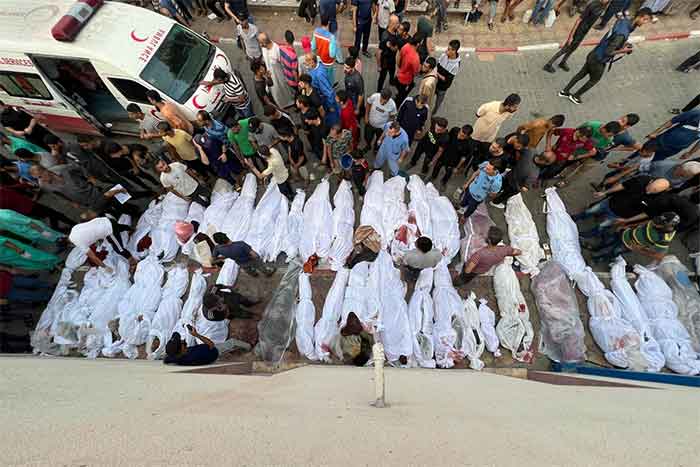
The outbreak of Cholera in Kashipur block of Rayagada and other 7 districts has resulted in the death of more than 17 people and unrelieved suffering of hundreds is reported by the Health minister in Assembly. For the last three decades , this has not been a new one to Kashipur and other tribal populous areas of the state where common people are routinely suffering with middle age diseases due to lack of basic amenities. Cholera visits every year in rainy seasons and becomes one of the major public health issues of Odisha. These serious health issues largely remain under-recognized by the governments and other non-govt. stakeholders that has been reflected in public health interventions in the cholera hot spot areas. The unabated loss of life shows our criminal negligence to check the death of poor tribal and Dalit in a backward pockets of the state in a time when we all are pre-occupied with celebrating the symbolic gesture of our ethnic and regional identities.
A recent survey by a team of activists of a lawyers collective, All India Lawyers Association for Justice, in their fact finding report said that the people who died in Kashipur are mostly STs and SCs belonging to Kondh, Paraja and Dom communities. They said the Kashipur community health centre (CHC) ,Tikiri Primary Health centre (PHC) and Ushapada Utkal Alumina company hospital and Rayagada district hospital were crowded with cholera patients. The treatment of the patients was without proper health care facilities as many patients were laying on the open space of Varanda with no beds available and the most shocking part is inadequate number of doctors and health staff even at the time of this crisis. Due to lack of basic facilities in PHC and CHC, mostly patients are being referred to Rayagada district hospital.
Local doctors say that it mainly spreads through contaminated water during the rainy season by use of water from paddy fields and non-function of tube wells. Open defecation is still in practice by majority due to lack of basic amenities such as safe drinking water and toilets and also limited awareness on personal hygiene and community sanitation. The hamlets lack basic living infrastructure such as standard housing, water source, shed for domestic animals, all weather roads, drainage lines and communications which are essential for each household.
Health experts revealed that not just Cholera but many other diseases such as Malaria are home to tribal pockets. Few years back more than 300 children of Malkangiri district died of Japanese encephalitis. The five major diseases, Malaria, cholera, Leprosy, Scabies and acute respiratory infection collectively account for more than 70 percent of the total patients of Odisha. This is one of the reasons for high IMR in the state as children are more vulnerable to such adverse environments. There has been a lack of minimum health infrastructure and doctors and health care staff mostly in the tribal areas of the state and it is evident that people have to travel a long distance with all kinds of transport related difficulties to visit the hospitals. Along with physical and social environment, malnutrition and food security has been a major concern which is closely linked to health issues but in spite of the use of NFSA’s limited rice distribution and schemes such as ICDS and most recent fortified rice distribution has not really solved the starvation, hunger and malnutrition issues of STs and SCs and other marginalized poor in South Odisha where the incidence of poverty remain high. It has been demanded that added to required rice there must be subsidized other essential food items such as Dal, Potato, and sugar, salt and edible oil through universal PDS with doorstep delivery.
The first national report on the state of India’s tribal people’s health submitted to the government by an expert committee on tribal health in 2018 reports that half of the tribal population, almost 5.5 core, live outside scheduled areas and are more vulnerable. It says the under-five mortality among STs equated to others has broadened as the child malnutrition is higher in case of tribal children than others. Malaria and tuberculosis are three to 11 times more common among tribal people, half of the malaria deaths in India occur among trials.
WHO in its annual report on Cholera in 2021 says the disease remains a potential threat to public health and an important indicator of high social inequality and lack of basic social development. The major countries having cholera disease such as Somalia, Congo, Ethiopia, Tanzania, Nigeria, Afghanistan, Bangladesh, Nepal and India are also poor in the Human Development Index. It shows unequal societies are more prone to such diseases. The Long term solution to control this disease depends on all round economic development and that includes most importantly, access to basic amenities such as safe drinking water, toilet, and housing and good hygiene practice among masses.
It has been observed that though public funds for tribal areas have been routed from a number of government, corporate CSR funds and international sources including UNO agencies, the resources have largely remained unspent, diverted and misused by the authorities and development actors. The budgetary provision of SCSP, TSP and article 375(1) grant as an additional spending for tribal and Dalit community and each household have remain notionally allocated but largely unimplemented and diverted for other purpose. The most popular DMF fund having a special scheme of PMKKKY where safe drinking water and sanitation has been identified as the main item of spending have been overlooked by district administration, same is happening with funds under OMBADC. Not just funds but the special institutional mechanism under constitutional provision for administration of tribal areas are the responsibilities of President of India ,Governor of the state and Tribal advisory council headed by Chief Minister and Minister for ST and SCs welfare as per article 164(1) applicable to Odisha remain largely dysfunctional in recent times.
While celebrating Azadi Ki Amrut Mahotsav by remembering the freedom fighters and makers of modern Odisha such as Laxman Naik of Koraput who was hanged to death by the British, for building an egalitarian society, we must not forget the promises we made and our constitutional mandates. Unfortunately, as far as the health situation of tribal areas are concerned, we are still in a middle age and our conditions can be compared with the most vulnerable countries of the world such as Somalia and Ethiopia. The DRDAs must act with a yearly target to reach every household with safe drinking water and toilets by pulling resources from all possible sources in priority. Odisha being a tribal state having sizeable tribal population and tribal area must have proactive initiatives to further stop the untimely death of innocents. The deceased families must be compensated with proper rehabilitation out of state funds.
Manas Jena, social activist, Bhubaneswar, Odisha. Email: [email protected]















































